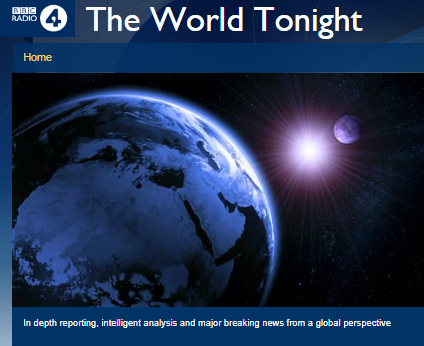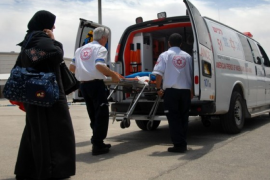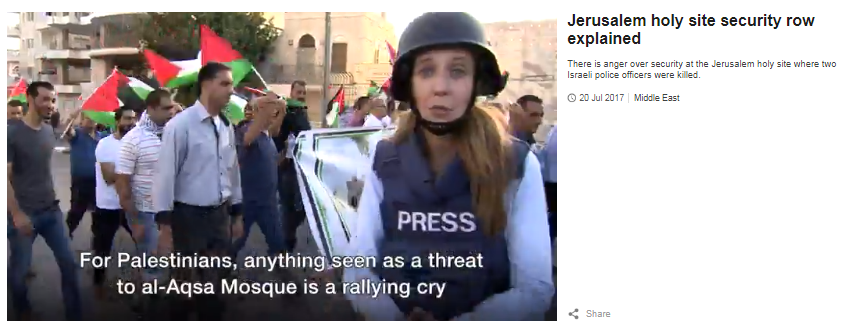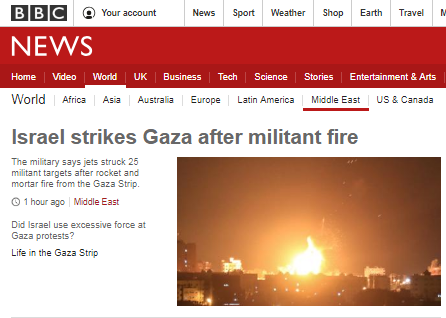As we all too frequently have cause to note here, the BBC Academy’s “journalists’ guide to facts and terminology” (published in the wake of the 2006 Thomas Report on the impartiality of BBC coverage of the Israeli-Palestinian conflict) states:
“There is no independent state of Palestine today, although the stated goal of the peace process is to establish a state of Palestine alongside a state of Israel.
In November 2012 the PLO secured a vote at the UN General Assembly, upgrading its previous status as an “entity” so that the UN now recognises the territories as “non-member observer state”.
The change allows the Palestinians to participate in UN General Assembly debates. It also improves the Palestinians’ chances of joining UN agencies.
But the UN vote has not created a state of Palestine (rather, it failed in its bid to join the UN as a full member state in 2011 because of a lack of support in the Security Council).
So, in day-to-day coverage of the Middle East you should not affix the name ‘Palestine’ to Gaza or the West Bank – rather, it is still an aspiration or an historical entity.
But clearly BBC journalists should reflect the changed circumstances when reporting on the UN itself and at the Olympics, where the International Olympics Committee recognises Palestine as a competing nation.
Best practice is to use the term Palestine firmly and only in the context of the organisation in which it is applicable, just as the BBC did at the Olympics – for example: “At the UN, representatives of Palestine, which has non-member observer status…”” [emphasis added]
Listeners to BBC Radio 4’s ‘The World Tonight’ on the evening of March 25th heard an item (from 02:24 here) presented as follows by newsreader Zeb Soanes:
Soanes: “President Trump has signed a proclamation recognising Israeli sovereignty over the Golan Heights – a strategically important plateau which was seized from Syria in 1967. Syria’s government has described Mr Trump’s action as a blatant attack on its integrity. Israel’s prime minister Benjamin Netanyahu witnessed the signing at a ceremony in the White House. He said it was important for his country’s security.”
Following a recording of Netanyahu speaking at that ceremony, Soanes went on:
Soanes: “Mr Netanyahu cut short his visit to Washington because of escalating violence between Israel and Palestine. Israel launched airstrikes across the Gaza Strip in retaliation for a long-range rocket attack which injured 7 people near Tel Aviv. The targets included the office of the Hamas leader Ismail Haniyeh. Hamas says a ceasefire has been agreed but there’s been no confirmation from Israel.” [emphasis added]
There is of course no point in having a style guide if journalists, presenters and producers – particularly it would seem at BBC Radio 4 – ignore its guidance. Given that the style guide correctly states “there is no independent state of Palestine today”, there is obviously no reason whatsoever for BBC staff to be promoting the inaccurate impression that such a state exists – and even more so when they are in fact referring to a terror organisation that violently seized power from the representatives of the Palestinians recognised by the international community.
Related Articles:
Increase in breaches of BBC’s style guide




